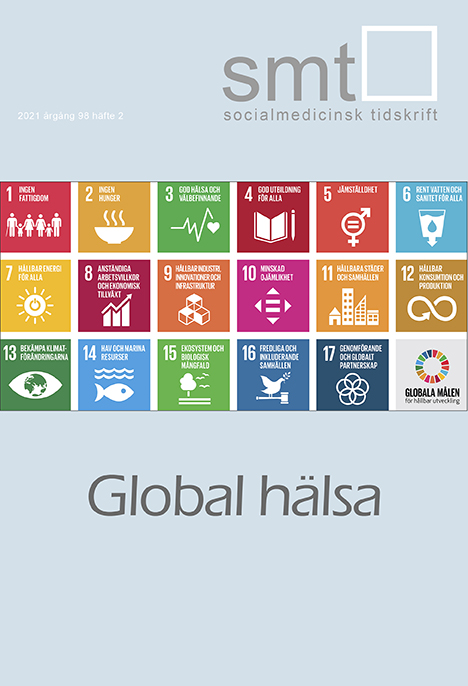Abstract
Masterprogrammet i Global hälsa vid Göteborgs universitet är frukten av ett unikt samarbete mellan fyra fakulteter och fem institutioner i syfte att ge studenterna verktyg för att anta utmaningen att minska den orättvisa fördelning av hälsa i världen. En hälsa som med globala perspektiv måste förstås utifrån bl.a. mänskliga rättigheter, hållbarhet, klimatförändringar och en ojämn fördelning av resurser och därmed ställer krav på interdisciplinärt samarbete. En reflektion efter att tre kullar examinerats är att interdisciplinariteten inom en tämligen traditionstyngd akademi delvis kan betraktas som en form av generisk kunskap för såväl studenter som lärare. En förmåga att lyssna, att stå tillbaka för något större (utjämna en orättvis fördelning av hälsa), att förstå att vi inte ensamma har alla svaren och att hitta en gemensam plattform för kommunikation och förståelse.
The Master's program in Global Health at the University of Gothenburg is the fruit of a unique collaboration between four faculties and five departments in order to give students tools to take on the challenge of reducing the unfair distribution of health in the world. A health that with global perspectives must be understood from e.g. human rights, sustainability, climate change and an unfair distribution of resources and thus demands interdisciplinary cooperation. A reflection after three batches have graduated is that interdisciplinarity within a rather tradition-laden academy can partly be regarded as a form of generic knowledge for both students and teachers. An ability to listen, to stand back for something greater (reduce health inequities), to understand that we do not have all the answers alone and to find a common platform for communication and understanding.

This work is licensed under a Creative Commons Attribution-NonCommercial 3.0 Unported License.
Copyright (c) 2021 Sven Hassler
